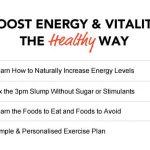//
Nutrient timing is some of the leading research in the relationship between nutrients and there effects on the body. This concept is nothing new, but for the active body, this can mean the difference between maximizing ones opportunity to gain the most out of their exercise and nutrition.
By simply eating at the time your body is receptive to a particular nutrient, you can maximize your body’s uptake and utilization of that nutrient. In Sports Nutrition, this is known as nutrient activation. I will explain what the leading research shows on this concept and how to incorporate this principle into you exercise routine.
The muscle machinery of the body operates on particular nutrients. The major form of this is carbohydrates, stored as glycogen in your muscles and liver. This nutrient forms the basis of energy production. During a moderate to intense exercise, muscle glycogen stores are the primary source of energy and are broken down to generate ATP (Adenosine Triphosphate), which is the only source of energy that can drive muscle contraction. One set of ten biceps curls results in a 12 percent loss of muscle glycogen; three sets result is 35 percent, and six sets result is 40 percent depletion.(2)
By supplying the muscles need for this nutrient before and during your exercise, you can set the stage to spare muscle glycogen, limit immune system suppression, minimize muscle damage and set the stage for a faster recovery following exercise.
Haff and colleagues did a study that showed when a carbohydrate supplementation was taken before and during exercise, the decline in muscle glycogen was 50 percent less and the subjects could perform more work than subjects receiving flavored water.
Researchers from the University of Texas in Austin, found that the addition of protein during this phase, improved endurance 57 percent compared to water and 24 percent compared to and carbohydrate-electrolyte drink. (3)
After exercise, your body’s need for nutrients are particularly important. Lets consider the effects on muscle post exercise. Studies done by Ivy and Portman show that ATP levels are depleted, glycogen stores are reduced and catabolic hormones are heightened. Post-workout, your body has a 45-minute window to shift the muscle machinery form a catabolic (destructive) state to an anabolic (constructive) state.
Read the full article here.
Add 180 Superfood to your daily diet.






